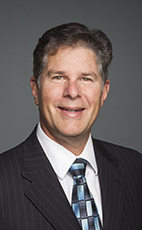Mr. Speaker, I listened intently to the comments of my colleague across the way. He highlighted from 1993 to 2005, those years which he says shine on the previous Liberal government's record.
During that period of time I was a city councillor and those were tough years. Those were years of cut and slash. Those were years when the federal government downloaded onto local government. We are now seeing the consequences of those mistakes, mistakes where the Liberals cut and cut and cut at the cost of our local citizens. It cost the infrastructure.
We now have a government that is providing a renewal to the infrastructure, working with the provinces and local government to see a renewal and it is called “Building Canada”. A couple of items are highlighted in my mind, such as the Saint John harbour. In my own riding of Langley, I saw first-hand what those cuts from the Liberals cost us. It cost us in health care also. They cut $25 billion from health care.
For years the Liberals were aware of the problems in Saint John harbour. It was under this Conservative government that finally the cleaning up of the harbour was dealt with. Why did the Liberals not participate in that? We have heard a lot of rhetoric from them, but again no action. That is their legacy: rhetoric and no action. Why did they not deal with that?
In my own riding we had a problem with the sewer structure. It was our government that finally funded that. I was pleased to announce $3 million on a $9 million project, one-third, one-third, one-third. Why did the Liberals neglect the infrastructure when they knew it was crumbling?

